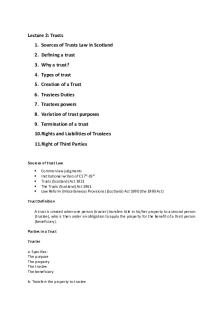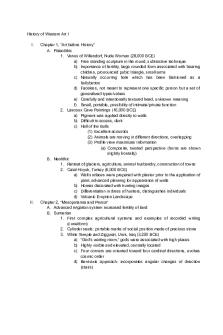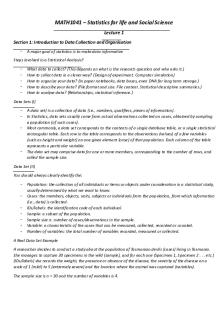Thrushes notes PDF

| Title | Thrushes notes |
|---|---|
| Author | Marietta Kosma |
| Course | English Language and Literature |
| Institution | University of Oxford |
| Pages | 2 |
| File Size | 35.9 KB |
| File Type | |
| Total Downloads | 75 |
| Total Views | 133 |
Summary
notes on Ted Hughes' Thrushes...
Description
Thrushes – Ted Hughes -
-
-
-
-
-
Hughes was a major English poet. He was considered as an authentically English poet, with a rural lifestyle. His work was dominated by nature imagery, especially animals. He had a passion for giving animals. He wanted to capture the aliveness of animals in their natural state, their wildness, their savage nature. He looks through the window at the garden and sees a thrush. Thrashes are considered as common, nervous, silly, inconsequential birds. There is nothing special about them, they are ordinary, domestic birds. In lines 2-4 there is an image of a gun, a weapon. In line 3, “dark deadly eyes” refers to the thrushes’ concentration. In line 4, Hughes reflects the instant bounce, the sudden, instinctual response of the prey contrasted with human behavior. Line 9 summarizes the instinct of devouring and links the thrushes with another birdravens that are associated with death. In an instant the thrush makes the decision to kill – it has the instinct of a predator. In the first stanza the thrush is re-conceptualized. We do not expect thrushes to be over predatory. Humans are compared to thrushes. They fail as they procrastinate. In the second stanza. Hughes considers what motivated the thrushes to behave in this instinctive way. In line 12, there is a gun image. A gun must point at something and Hughes speculates that it points to what gives the birds their aims. In line 13, there is an instinctive response with a shark and Mozart. Mozart was having the same automatic response – reaction when he was writing music to a shark; he was out of the human sphere. In the same way the thrushes do not stop until they reach a level of perfection, kill their prey instantly. It is about the purity and absolute concentration of the action. The final stanza turns to human preoccupations such as war. In line 18, Hughes suggests that we need animals to help us become heroes. He further suggests that we all need something to focus on. The unknown, fearful and uncontrollable is waiting outside of our orderly lives. We are constantly being distracted from the things happening in our minds. The thrushes can concentrate, they become one with the action. The final lines question our aims and prompts us to reflect on human motivation. Hughes has a holistic view of the universe and of life. He is inspired by the natural world to contemplate humanity. He reflects on humanity through the thrushes. In order for man to be a vital human being, he needs to have the experience to struggle with the knowledge of despair that comes with the awareness of death and mortality. The physical description of the exterior of the thrushes leads to a consideration of the essence of the bird which is reduced to “nothing but a stab”. The thrush has been reduced to an act of time that defines the creature. Unlike the thrushes, humans cannot be defined purely by what they do. It is the spiritual and the psychological drives that make them human and distinguish them from the thrushes whose essence is purely defined by what they do. The spiritual and psychological dimension of the human beings renders them prone to the destruction
of sin and guilt and for the search of meaning. The bird’s progress is an enactment of the move between vitality and death, self-affirmation and fulfillment and annihilation and destruction....
Similar Free PDFs
Popular Institutions
- Tinajero National High School - Annex
- Politeknik Caltex Riau
- Yokohama City University
- SGT University
- University of Al-Qadisiyah
- Divine Word College of Vigan
- Techniek College Rotterdam
- Universidade de Santiago
- Universiti Teknologi MARA Cawangan Johor Kampus Pasir Gudang
- Poltekkes Kemenkes Yogyakarta
- Baguio City National High School
- Colegio san marcos
- preparatoria uno
- Centro de Bachillerato Tecnológico Industrial y de Servicios No. 107
- Dalian Maritime University
- Quang Trung Secondary School
- Colegio Tecnológico en Informática
- Corporación Regional de Educación Superior
- Grupo CEDVA
- Dar Al Uloom University
- Centro de Estudios Preuniversitarios de la Universidad Nacional de Ingeniería
- 上智大学
- Aakash International School, Nuna Majara
- San Felipe Neri Catholic School
- Kang Chiao International School - New Taipei City
- Misamis Occidental National High School
- Institución Educativa Escuela Normal Juan Ladrilleros
- Kolehiyo ng Pantukan
- Batanes State College
- Instituto Continental
- Sekolah Menengah Kejuruan Kesehatan Kaltara (Tarakan)
- Colegio de La Inmaculada Concepcion - Cebu















